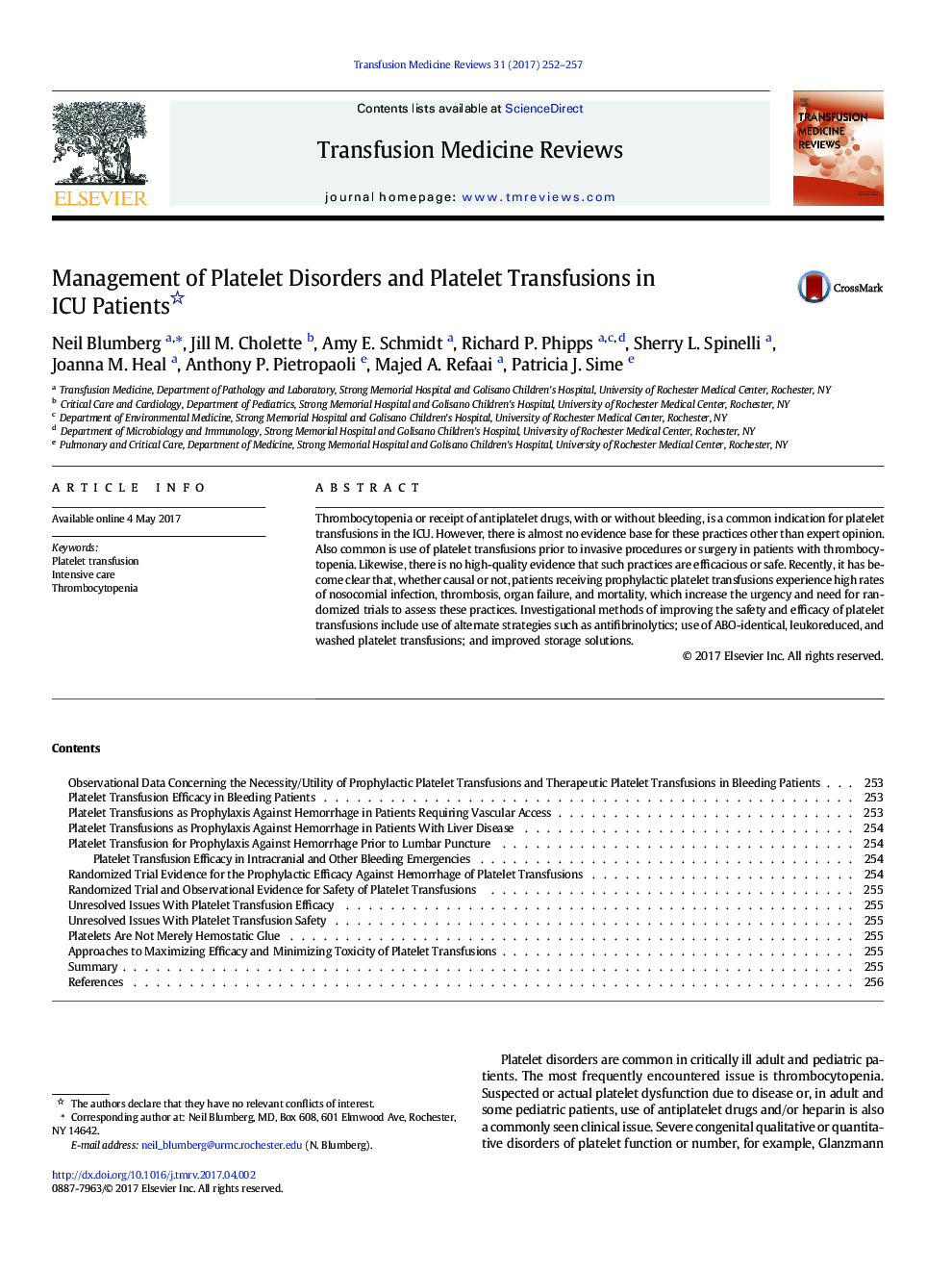| Article ID | Journal | Published Year | Pages | File Type |
|---|---|---|---|---|
| 5664772 | Transfusion Medicine Reviews | 2017 | 6 Pages |
â¢There is little evidence base for platelet transfusion practices in the ICU other than expert opinion.â¢Efficacy and safety are uncertain for current practices.â¢Patients receiving therapeutic or prophylactic platelet transfusions experience high rates of nosocomial infection, thrombosis, organ failure, and mortality.â¢These findings support an urgent need for randomized trials to assess platelet transfusion practices in the ICU.â¢Possible approaches to improving the efficacy and safety of platelet transfusions include restrictive guidelines, antifibrinolytics, ABO-identical and washed platelets, and improved storage solutions.
Thrombocytopenia or receipt of antiplatelet drugs, with or without bleeding, is a common indication for platelet transfusions in the ICU. However, there is almost no evidence base for these practices other than expert opinion. Also common is use of platelet transfusions prior to invasive procedures or surgery in patients with thrombocytopenia. Likewise, there is no high-quality evidence that such practices are efficacious or safe. Recently, it has become clear that, whether causal or not, patients receiving prophylactic platelet transfusions experience high rates of nosocomial infection, thrombosis, organ failure, and mortality, which increase the urgency and need for randomized trials to assess these practices. Investigational methods of improving the safety and efficacy of platelet transfusions include use of alternate strategies such as antifibrinolytics; use of ABO-identical, leukoreduced, and washed platelet transfusions; and improved storage solutions.
